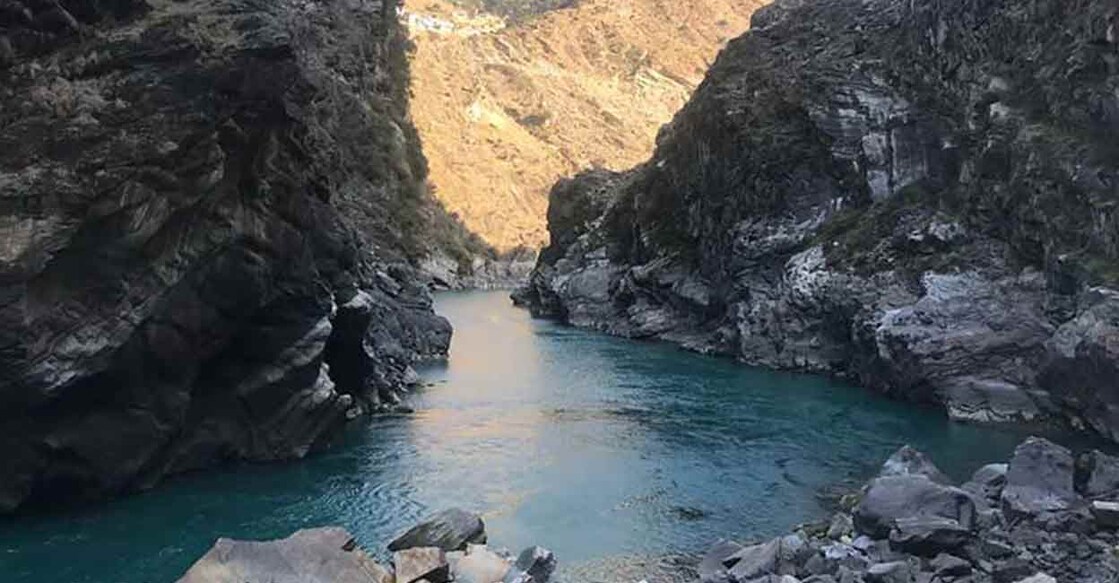Explained | Dispute on Indus Waters Treaty

Mail This Article
A delegation from India attended a meeting of the Neutral Expert proceedings at the Permanent Court of Arbitration office in Vienna on the Kishenganga and Ratle hydroelectric projects in Jammu & Kashmir. The meeting was convened by the Neutral Expert appointed on India’s request under the aegis of the Indus Waters Treaty. Representatives of Pakistan also attended the meeting.
Indus Waters Treaty
• India and Pakistan share the waters of six rivers — Ravi, Beas, Sutlej, Indus, Chenab and Jhelum. The basin is mainly shared by India and Pakistan with a small share for China and Afghanistan.
• The Indus Waters Treaty was signed in September 1960 after nine years of negotiations between India and Pakistan with the help of the World Bank, which is also a signatory.
• Under the Treaty, the water from the three eastern rivers — Ravi, Sutlej and Beas — averaging around 33 million acre feet (MAF) were allocated to India for exclusive use.
• The water from western rivers — Indus, Jhelum and Chenab — averaging to around 135 MAF were allocated to Pakistan except for specified domestic, non-consumptive and agricultural use permitted to India as provided in the Treaty.
• The Treaty also sets forth distinct procedures to handle issues which may arise: “questions” are handled by the Commission, “differences” are to be resolved by a Neutral Expert, and “disputes” are to be referred to a seven-member arbitral tribunal called the “Court of Arbitration.”
• As a signatory to the Treaty, the World Bank’s role is limited and procedural.
• The Treaty sets out a mechanism for cooperation and information exchange between the two countries regarding their use of the rivers, known as the Permanent Indus Commission (PIC), which has a commissioner from each country.
• The two commissioners are required to meet at least once every year, alternately in India and Pakistan.
• The commission enables to establish and promote cooperative arrangements for the treaty implementation, furnish or exchange of information or data provided for in the treaty, promote cooperation between the parties in the development of the waters of the Indus system.
Disagreement over two hydroelectric power plants
• The disagreement between India and Pakistan concerns the design features of the Kishanganga (330 MW) and Ratle (850 MW) hydroelectric power plants.
• The two countries disagree over whether the technical design features of these two hydroelectric plants contravene the Treaty.
• The plants are located in India on tributaries of the Jhelum and the Chenab Rivers. The Treaty designates these two rivers, as well as the Indus, as the “Western Rivers” to which Pakistan has unrestricted use with some exceptions. Under the Treaty, India is permitted to construct hydroelectric power facilities on these rivers.
• In 2015, Pakistan requested the appointment of a Neutral Expert to examine its technical objections to India’s Kishenganga and Ratle hydroelectric projects.
• In 2016, Pakistan unilaterally retracted this request and proposed that a Court of Arbitration adjudicate on its objections.
• Under the pact, any difference needs to be resolved under a three-stage approach.
• In November 2016, India had pointed out the legal untenability of the World Bank launching two simultaneous processes for appointment of a neutral expert — requested by India, and establishment of a Court of Arbitration — requested by Pakistan on Kishenganga and Ratle hydroelectric projects.
• In March 2022, the World Bank announced starting the two concurrent processes and subsequently, appointed a neutral expert and a chair of the Court of Arbitration.
• When the two concurrent processes resumed in March last year, India only cooperated with the Neutral Expert and has been skipping the process being followed by the Court of Arbitration.
• In July 2023, Court of Arbitration ruled that it has the competence to consider matters concerning the Kishenganga and Ratle hydroelectric projects.
• India has been maintaining that it will not join the Pakistan-initiated proceedings at the Permanent Court of Arbitration as the dispute is being already examined by a neutral expert under the framework of the Indus Waters Treaty.




